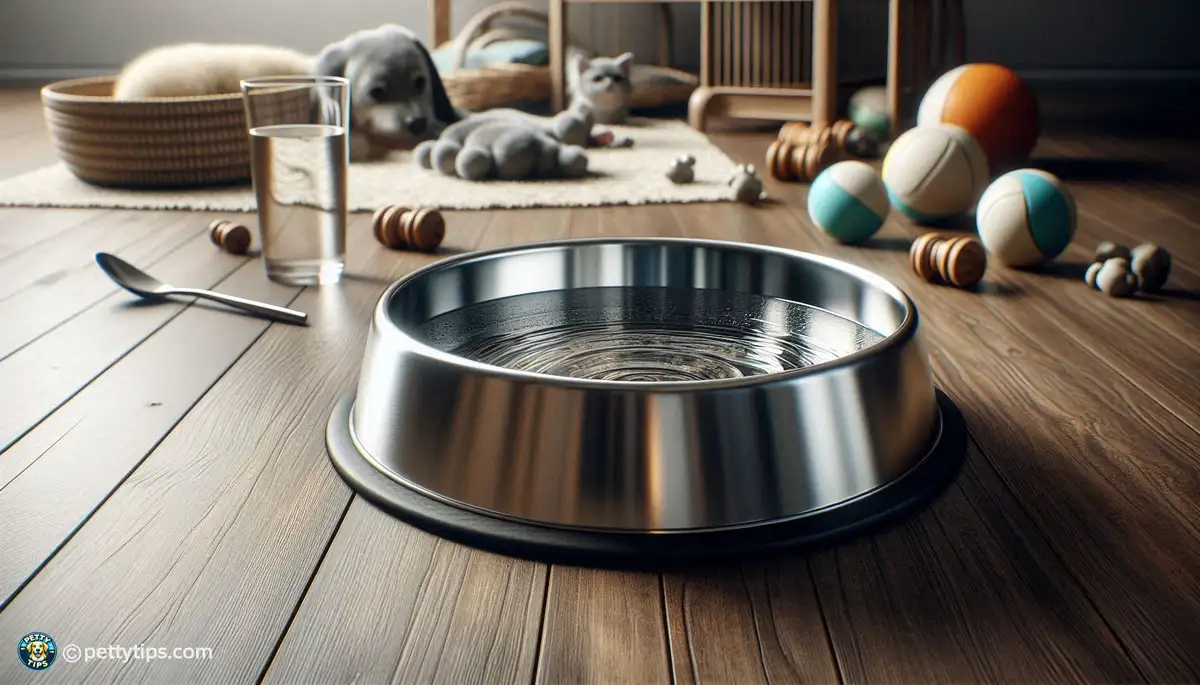- Home
- Pet Nutrition
- The Ultimate Guide to Choosing the Right Water Bowl for Your Pet
The Ultimate Guide to Choosing the Right Water Bowl for Your Pet

Size Matters
When selecting a water bowl for your pet, size is a crucial factor to consider. A bowl that is too small may not hold an adequate amount of water, leading to frequent refills and potential dehydration if your pet runs out. On the other hand, a bowl that is too large may take up unnecessary space and could be challenging for smaller pets to reach comfortably. Consider the size of your pet and their daily water consumption when choosing the appropriate bowl size.
Material Selection
The material of the water bowl can impact both its durability and your pet's health. Stainless steel bowls are a popular choice as they are durable, easy to clean, and resistant to bacteria growth. However, some pets may have allergies to certain metals, so it's essential to monitor for any adverse reactions. Ceramic bowls are another option, offering a wide range of designs and colors to suit your aesthetic preferences. However, they can be prone to chipping or breaking if dropped. Plastic bowls are affordable and lightweight but may harbor bacteria if not cleaned regularly and can develop scratches that trap dirt and grime.
Accessibility and Design
Consider your pet's accessibility and any unique needs they may have when selecting a water bowl. For older pets or those with mobility issues, choosing a bowl with a lower profile or raised stand can make drinking more comfortable and reduce strain on their joints. Additionally, some pets prefer drinking from fountains or flowing water sources, so investing in a water fountain designed for pets may encourage them to drink more water throughout the day.
Factors to Consider for Specific Pets
Dogs
When choosing a water bowl for your dog, consider their size, breed, and drinking habits. Larger dogs may require a heavier, more stable bowl to prevent tipping over, while smaller breeds may prefer shallow bowls that are easier to reach. Additionally, dogs with long ears may benefit from bowls with a narrower opening to prevent their ears from getting wet while drinking.
Cats
Cats can be picky drinkers, so it's essential to choose a water bowl that appeals to their preferences. Some cats prefer shallow bowls, while others may prefer deeper bowls or even drinking from running water sources. Experiment with different bowl styles and locations to see what works best for your feline friend. Additionally, consider placing multiple water bowls throughout your home to encourage hydration and prevent territorial disputes between multiple cats.
Small Animals
For small animals such as rabbits, guinea pigs, or ferrets, selecting the right water bowl is crucial for their health and well-being. Opt for heavy ceramic bowls or water bottles attached to their enclosure to prevent tipping and spills. It's essential to clean and refill the water bowl or bottle regularly to ensure a fresh and clean water supply for your small pet.
Maintenance and Hygiene
Regular Cleaning
Regardless of the type of water bowl you choose, regular cleaning is essential to maintain your pet's health and prevent bacterial growth. Wash the water bowl with hot, soapy water at least once a day, and thoroughly rinse it to remove any soap residue. Additionally, consider running the water bowl through the dishwasher on a hot water cycle periodically to ensure a thorough clean.
Monitoring Water Consumption
Monitoring your pet's water consumption is crucial for detecting any changes in their health or behavior. Keep track of how much water your pet drinks each day and be mindful of any sudden increases or decreases in their intake. Changes in water consumption could indicate underlying health issues such as dehydration, kidney problems, or diabetes, so consult your veterinarian if you notice any significant changes.
Replacement and Upgrades
Over time, your pet's water bowl may become worn, scratched, or damaged, compromising its hygiene and functionality. It's essential to inspect your pet's water bowl regularly and replace it as needed to ensure they always have access to clean, fresh water. Additionally, as your pet grows or ages, their needs may change, so be prepared to upgrade their water bowl to accommodate any new requirements or preferences.
In conclusion, choosing the right water bowl for your pet is essential for their health, hydration, and overall well-being. By considering factors such as size, material, accessibility, and your pet's specific needs and preferences, you can select the perfect water bowl to keep your furry friend happy and hydrated. Remember to prioritize regular cleaning and maintenance to ensure a clean and bacteria-free water supply, and monitor your pet's water consumption for any signs of health issues. With the right water bowl, you can help your pet stay healthy, happy, and hydrated for years to come.
